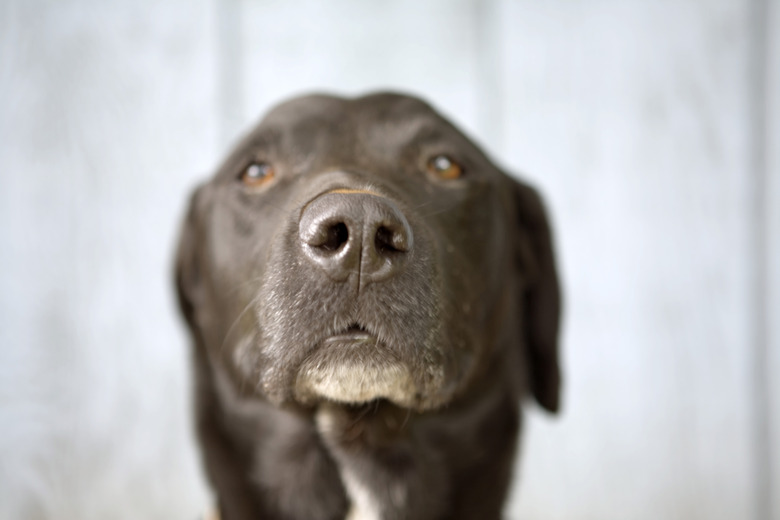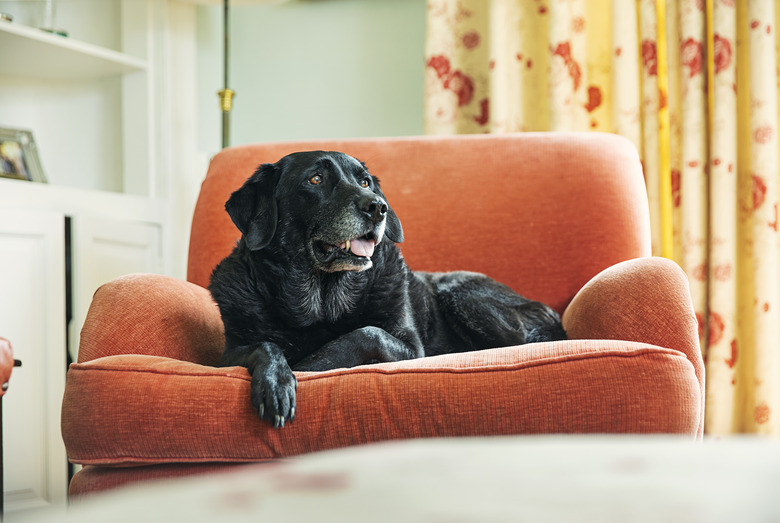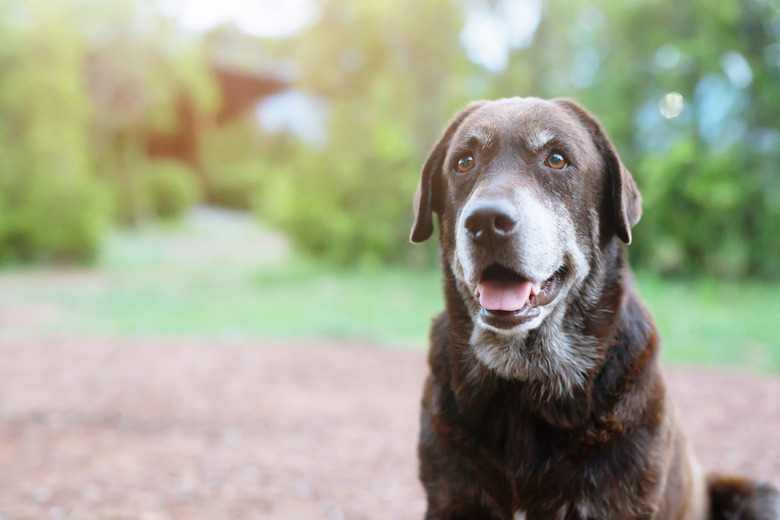Why Does My Old Dog Smell Bad?
When an old dog smells bad all of a sudden, there's likely an underlying health condition to blame which means that it's time for a veterinary visit. Stinking isn't a natural part of canine aging but might be related to ailments common in geriatric dogs, including kidney, skin, or dental disease. If he reeks due to flatulence, he might have gastrointestinal problems or require dietary changes. Bad odors can signify canine cancer, especially in the mouth. Your vet can get to the bottom of your dog's foul scent and treat him accordingly.
Periodontal dental disease
Periodontal dental disease
If your dog's breath smells terrible, he needs more than just a good canine mouthwash or toothpaste. Dental and periodontal problems are common in senior dogs. Your vet examines your dog's mouth as part of his semiannual wellness visit. Elderly dogs should visit the vet every six months, so incipient problems might be nipped in the bud. Depending on the condition of your dog's mouth, he might require tooth extraction, gum surgery, or a thorough cleaning, all done under anesthesia.
Urinary incontinence causes urine reeks
Urinary incontinence causes urine reeks
Urinary incontinence, or lack of bladder control, often occurs in older dogs. While any canine might suffer from urinary incontinence, the condition most often occurs in senior spayed females. Certain breeds are predisposed to urinary incontinence, including the springer and cocker spaniel, Old English sheepdog, and Doberman pinscher. Your dog will reek of urine as it dribbles out of her and onto her lower legs and body. Urinary incontinence can signal a bladder infection, kidney disease, or urinary tract disease.
If your dog is having problems controlling their bladder, you need to consult a veterinarian. Your vet will conduct blood tests and a urinalysis. Treatment depends on the cause. For simple incontinence, your vet can prescribe medication to strengthen your dog's sphincter muscle for better urine control or offer hormonal therapy.
Kidney disease causes odor
Kidney disease causes odor
Bad breath doesn't just signal mouth issues. It's also a sign of kidney disease, a frequent occurrence in older pets. Dogs with kidney disease might give off an odor in general. Other symptoms include excess water consumption and increased urination, dull coat, appetite loss, and mouth soreness. While there's no cure for chronic kidney disease — with the extremely expensive exception of a kidney transplant — your vet can prescribe a special kidney diet for your dog that helps manage this progressive condition.
Skin disease and infections
Skin disease and infections
Old dogs with skin infections can smell pretty funky. Secondary bacterial infections from constant scratching can give off a putrid odor, as can yeast infections in your dog's ears, paws, or elsewhere. It can indicate that your dog suffers from hypothyroidism, or insufficient thyroid hormone, another frequent problem in senior canines. Your vet will conduct various tests to determine the cause of your dog's skin issues. If there's an infection, she'll likely prescribe antibiotics or antifungal medications. If your dog is diagnosed with hypothyroidism, a daily thyroid pill, necessary for the rest of his life, can reverse many symptoms.
Preventing bad smells in dogs
Preventing bad smells in dogs
The first and best thing to do with any smelly dog breeds of any age is to routinely provide regular hygiene, including brushing their teeth and fur. If you notice your dog smelling funky, it could just mean that they rolled in something outside or are smelly from something in their environment. Like people, dogs need baths to remove grime and debris from their coats, skin, and paws. Additionally, regularly launder your dog's bed and any bedding, pillows, or blankets they use as these fabrics trap odors and in turn, rub off on your dog.
In general, take your dog to the vet regularly. Senior dogs need regular care and additional attention, so watch for any changes in their behavior and talk to your vet about any concerns you have.


